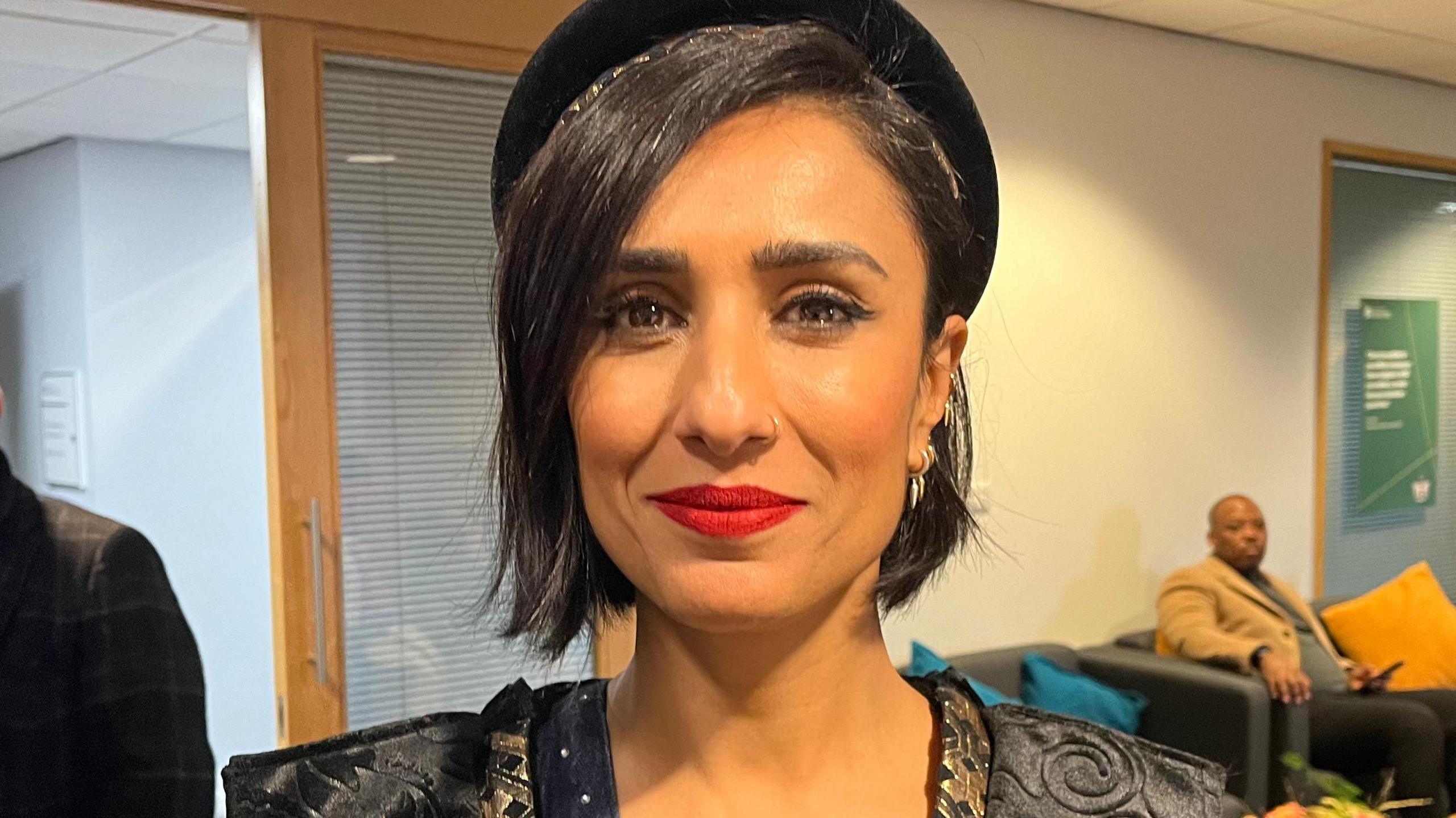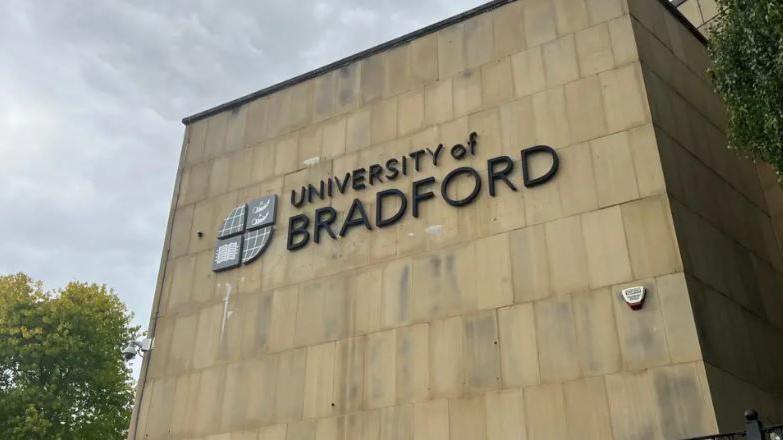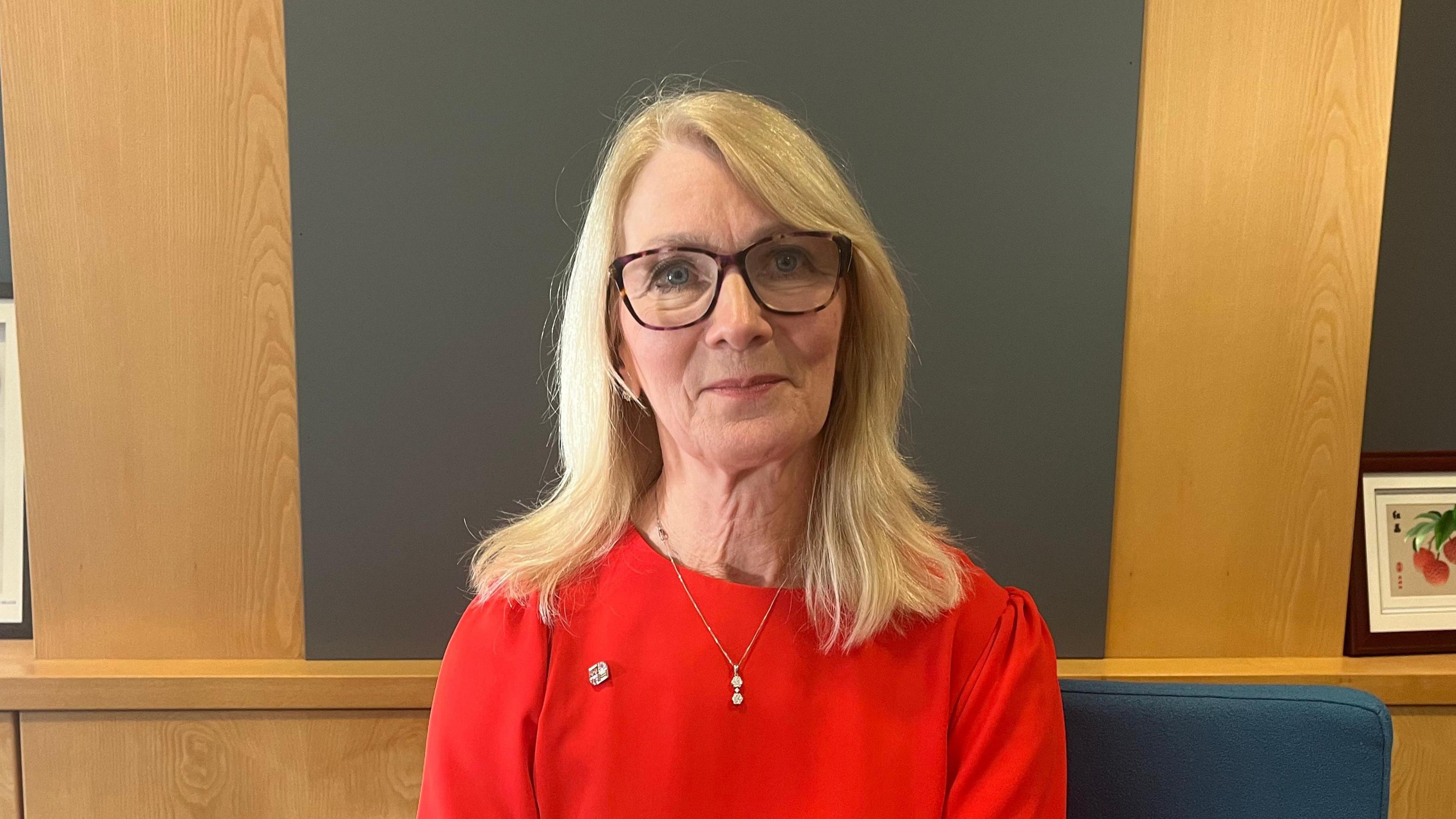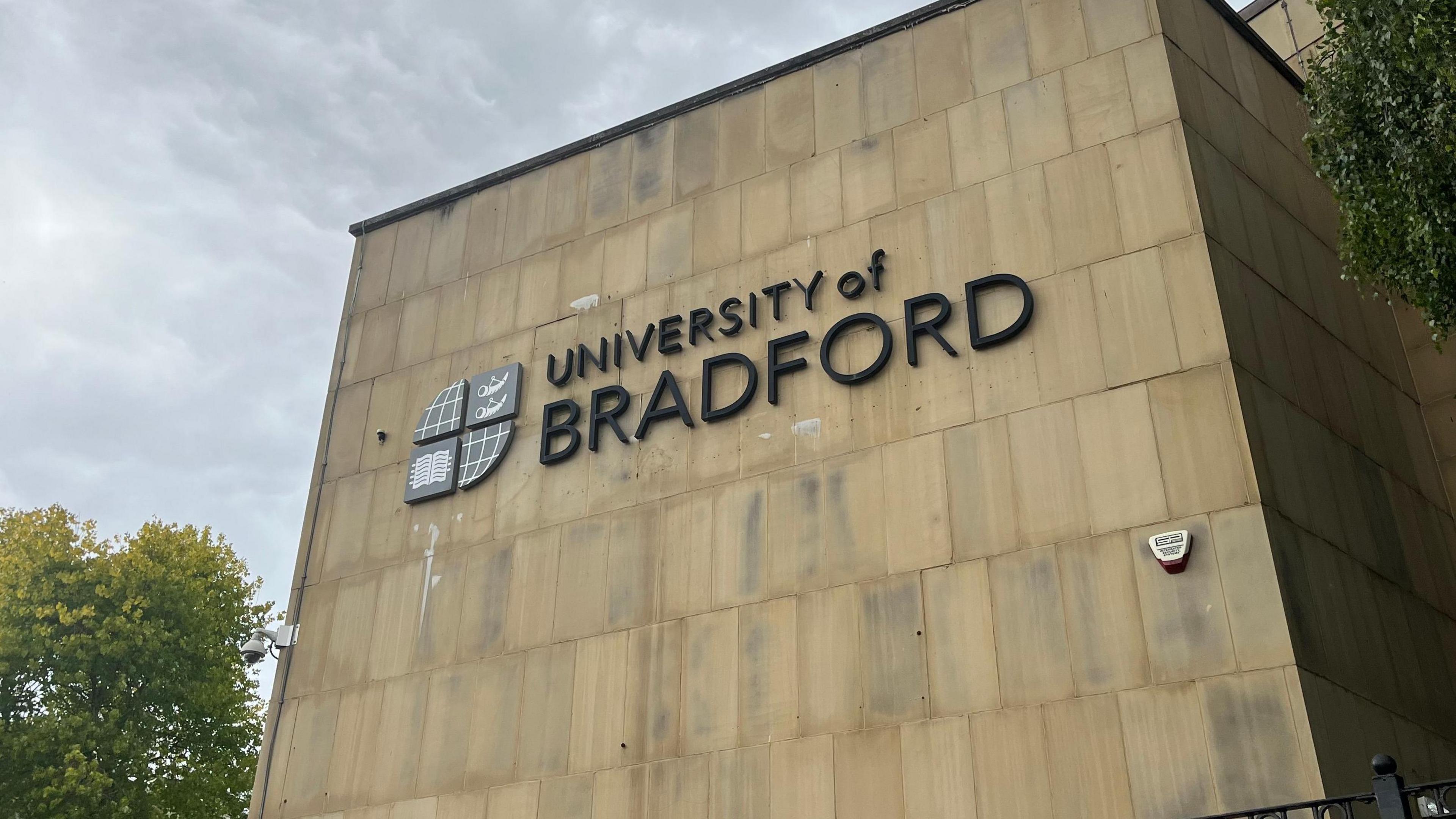University 'giving opportunity' to less well-off

Anita Rani, the University of Bradford's chancellor, says the academic institution is "giving opportunity" to people
- Published
The University of Bradford's topping of the English Social Mobility Index (SMI) proves graduates are able to "go off and have incredible lives and jobs", its chancellor said.
The SMI rates how well higher education institutions do to improve their students' life chances, with Bradford topping the SMI rankings since its inception in 2021.
According to the university, 65% of its students are from the most socio-economically deprived backgrounds and 79% are from the region.
Anita Rani, television presenter and the university's chancellor, said: "We're giving opportunity to people who wouldn't necessarily get these opportunities elsewhere."
The chancellor has launched a university scholarship offering half-price fees to four female students hoping to study STEM subjects.
Discussing the experience of students, she said: "The support the university gives them and all the added value they get from coming to Bradford, they are able to go off and have incredible lives and jobs afterwards."

The university finished ahead of Aston University in second and the University of Wolverhampton in third
The SMI ranks English universities registered with the Office for Students by their contribution to social mobility, based on the social distance travelled by their graduates.
It combines measures of access, continuation and graduate outcomes for undergraduate students.
Prof Shirley Congdon, the university's vice-chancellor, said: "We are a place of inclusion where people can be themselves, be challenged, be supported.
"What we really need is people to be included to get diversity of thought, to get diversity in the jobs where people are underrepresented."

Prof Shirley Congdon, the university's vice-chancellor, says there is still work to do in attracting young people to study in the creative industries
The University of Bradford said it worked with firms including Morrisons, the local NHS trust and accountancy firm PricewaterhouseCoopers to boost employment opportunities in industries with underrepresented demographics.
Prof Congdon admitted the academic institution still had work to do in boosting a lack of appetite in the creative sector.
"We need to do more work in encouraging people to think more broadly about what occupations they could get into rather than focusing more narrowly," she said.
"I think some of it is because they haven't seen people in their own lives and families working in those industries and maybe there is a perception that it is difficult to work in because it's different and it's more of a portfolio career."
'I'm grateful'
Jonathan O'Brien, 29, started studying at the university after having a child and said he previously worked in "various low paying jobs".
"I'm grateful for the opportunity to study and get a degree," the second year mechanical engineering student said.
"I didn't have the grades to do the course but the university opened new channels so I could get on it - without that I wouldn't have had this opportunity."
He continued: "I have always had a fascination with engineering but I never felt like I could sit in a university and take notes during lectures, I do struggle with that.
"But I have always liked fixing and making things."
The university finished ahead of Aston University in second and the University of Wolverhampton in third.
Listen to highlights from West Yorkshire on BBC Sounds, catch up with the latest episode of Look North or tell us a story you think we should be covering here, external.
Related topics
- Published3 December 2024
